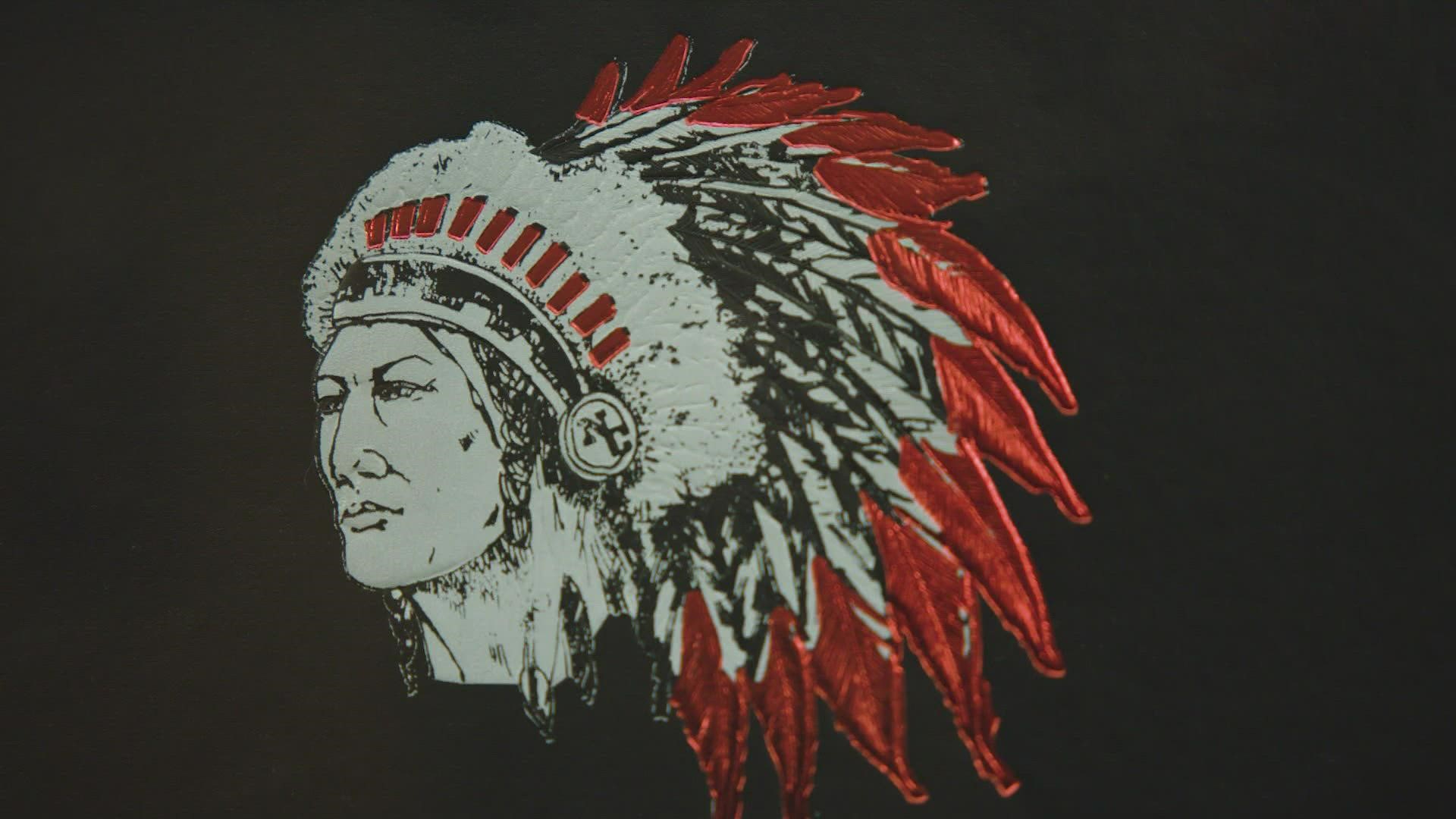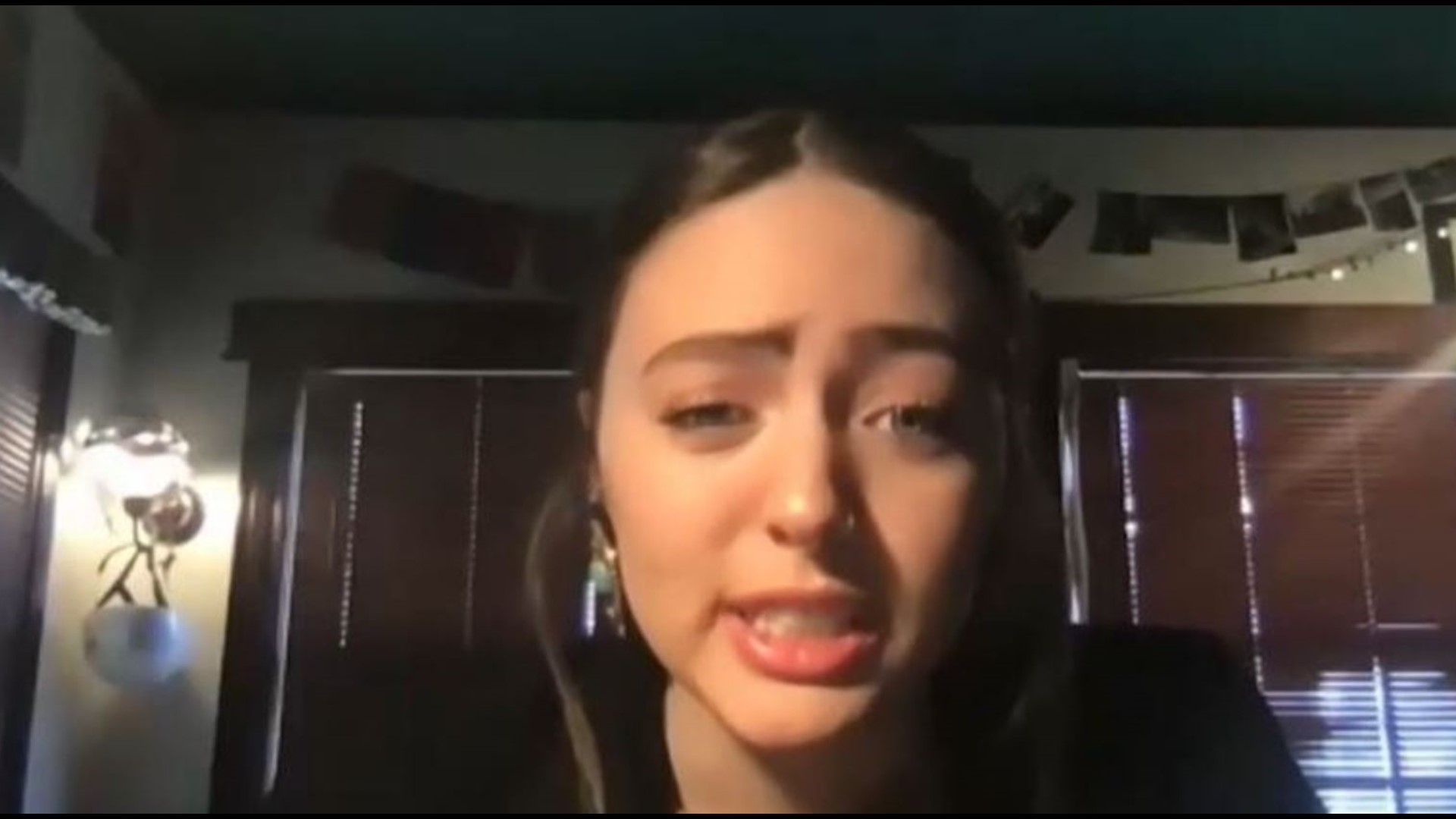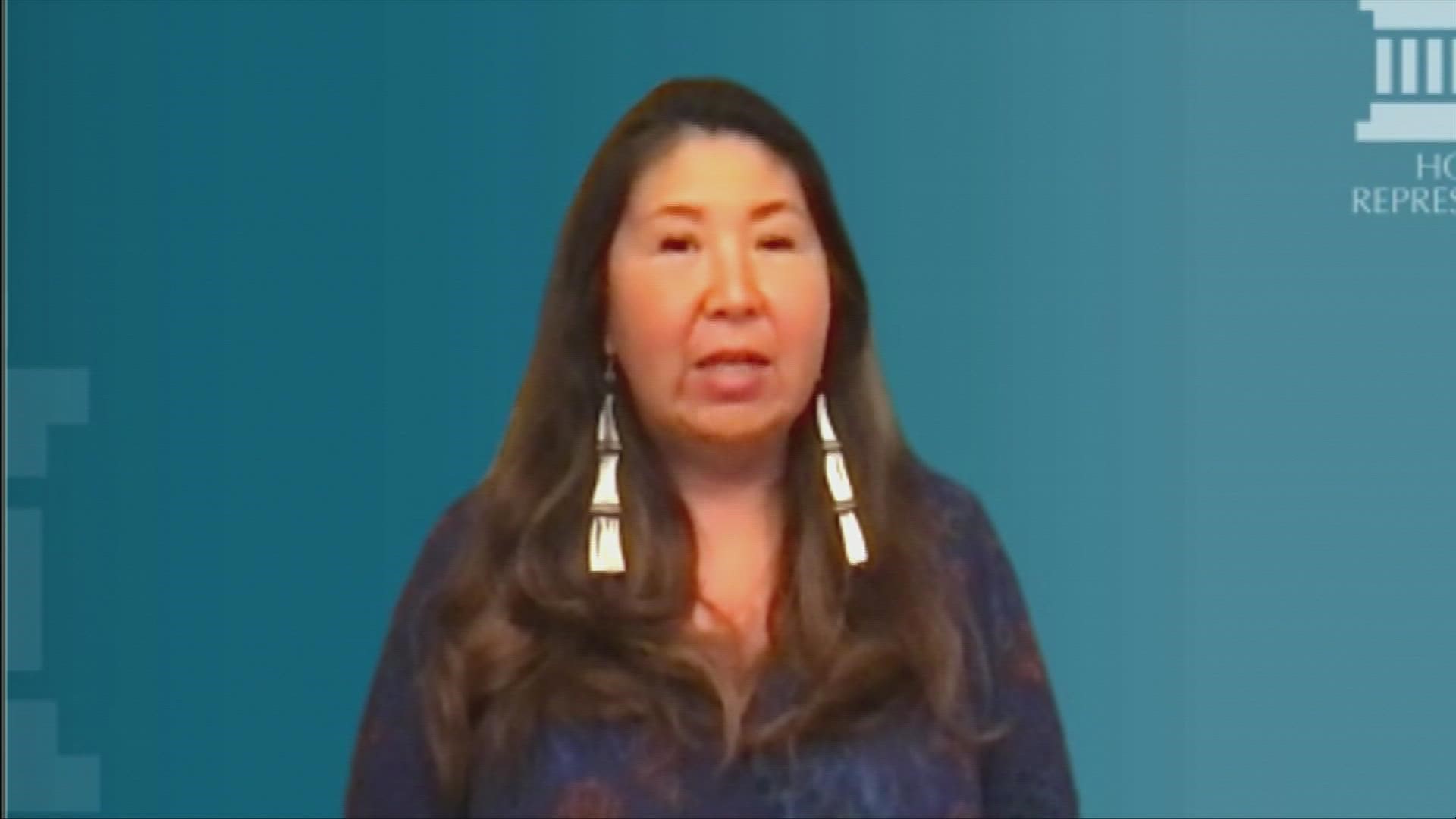SPOKANE, Wash. — For months, a new state law has been in effect that bans public schools from using certain Native American mascots on school grounds.
Just weeks ahead of the law's Dec. 31 deadline, dozens of schools have yet to make a decision, according to one of the bill's lead sponsors, State Representative Debra Lekanoff.
"I really believe that we have an opportunity here to re-identify who we are as humans. We're not a character. We are not a cartoon," Lekanoff said.
Some schools, however, have successfully made the transition, like North Central High School in Spokane.
Ivy Pete, a senior at North Central, often bristled at her school's now-former mascot, the Indians. Every day while heading to class, she faced a glass case that contained a life-size figure of what is portrayed as a tribal man. But to Pete's eyes, it was a mannequin.
The figure, which Pete said was a gift from alumni years ago, may seem harmless to other students, but to Pete, it felt like the school was turning her culture into a mockery.
"To see those mannequins in the case that were supposed to represent me, people were telling me I should feel honored by that. I don't feel honored. Why do I have to feel honored by something that doesn't represent me?" Pete said.
Experts who have conducted extensive research on the harmful effects of Native mascots have found these images can be damaging to many native youth's perceptions of who they are.
Research has shown the use of mascots isn't just insulting; it can bring about cultural trauma, according to psychology professor Stephanie Fryberg, a member of the Tulalip Tribes.
Fryberg is a former associate professor of Psychology and American Indian Studies at the University of Washington and currently teaches at the University of Michigan.
Her recent study explored how young students are impacted by certain Native mascots.
"What we consistently found is that exposing them to Native mascots compared to not being exposed to Native mascots, it decreased self-esteem, it decreased their sense of efficacy and what their community could achieve. It decreased their academic achievement goals," Fryberg said.
For Pete, such images impacted her sense of self.
"I felt ashamed. I felt like an imposter in my own skin, knowing my own identity, knowing my history, knowing my family." Pete said.
"It's a very romanticized, noble savage, you know, warrior princess type representation that doesn't really account for our everyday experiences today," Fryberg said.
Pete protested her high school's Indians mascot by creating a letterman jacket featuring a marmot, not a Native headdress. She became involved in bringing young voices to the state legislature and began advocating for House Bill 1356, the legislation that prohibits the inappropriate use of Native American names, symbols, or images as public school mascots, logos, or team names.
"I started talking to policymakers, stakeholder groups and really threw my full force into this bill," Pete said.
State Representative Debra Lekanoff, who represents Whatcom, Skagit and San Juan Counties, is one of the bill sponsors.
"They have to be strong and knowing who they are, know that they matter. Or else we're going to continue down this road of historical trauma. And we, as the first Americans, can no longer take that on," Lekanoff said.
This spring, Gov. Jay Inslee signed the bill into law.
"This entire mascot debate has been solely and entirely fueled by the fire of our ancestors, by those who came before us, and so I stand on their shoulders," Pete said.
Nisqually Indian Tribe chairman Willie Frank Jr. III is working with schools in Thurston county to help them remove offensive mascots.
He took KING 5 to the Wa He Lute Indian School near Olympia, to show how schools can feature native symbols accurately and respectfully. The school's interior prominently features a mural telling the story of the Nisqually River and a canoe that Frank's father used for fishing.
"I think it was to make sure that we teach our kids who they are and when you walk into this school, you automatically feel there's something here, that this isn't a joke. This isn't a cartoon," Frank said.
Today, Pete can walk through her school a little more comfortably. The glass case containing the mannequin is gone. Headdress imagery on campus banners are now gone too. And the North Central High School Indians are now the Wolfpack.
"I'd like to say we've seen it to the finish line, right? Where we're the Wolfpack now, which is exciting and we're making all these changes. I get to compete and track this year with a new uniform that no longer feels like a denigration to my culture, which is so cool," Pete said.
Not all schools in Washington have made such progress.
The Washington Office of Superintendent of Public Instruction is providing grants for schools to pay for changing old mascots. 38 schools have self-reported that they would need funding for the mascot changes, according to OSPI.
OSPI does not yet have a record of how many schools have made a decision on their mascots, as the grant program has not "gone live" yet, according to OSPI policy analyst Anna Hernandez-French.
"OSPI cannot determine whether a school needs to make a change; that can only be decided through the tribal consultation process laid out in the bill," Hernandez-French said in an email to KING 5.
"Everything OSPI has heard from districts points toward schools meeting the Dec. 31 deadline," Hernandez-French said.
Lekanoff is currently working on an amendment to add an extension and funding for schools to implement the law.



